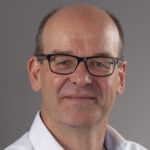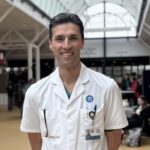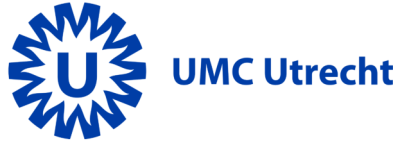UMCU
UMC Utrecht is a large academic medical center in the Netherlands, affiliated with Utrecht University. Located in Utrecht, it combines high-quality patient care, medical research, and education. UMC Utrecht provides advanced treatment across a wide range of medical specialties, including cardiology, oncology, neurology, and pediatrics. Its focus on personalized medicine integrates the latest scientific research into clinical practice, ensuring the best outcomes for patients. UMC Utrecht is renowned for its innovative treatment approaches, particularly in complex and rare conditions, and serves both national and international patients.
The Julius Center for Health Sciences and Primary Care is a leading research institute within UMC Utrecht, focusing on improving population health through interdisciplinary research. The center conducts pioneering research in epidemiology, biostatistics, chronic diseases, and healthcare systems. It aims to enhance the prevention, early detection, and treatment of diseases, with a strong emphasis on evidence-based strategies. The Julius Center also specializes in health economics, working to optimize healthcare delivery and resource use.
Both UMC Utrecht and the Julius Center prioritize collaboration, combining clinical expertise with cutting-edge research to develop new treatments and healthcare solutions. The institutions work together to translate scientific discoveries into practical applications, improving patient care and healthcare systems. Through their combined efforts, UMC Utrecht and the Julius Center are at the forefront of medical research and healthcare innovation, contributing significantly to global health advancements and the improvement of patient outcomes.
Role in the project
UMC Utrecht has a large role in several work packages of the project. UMC Utrecht leads work package 1 on methodological framework for the evaluation of assistive technologies. Furthermore, UMC Utrecht is one of the main parties in both clinical work packages (work package 2 and 3) on neurovascular and oncological interventions. The following clinical studies will run at UMC Utrecht: Aneurysm@risk, MISTRAL (former MITA) study and the ROTA study.
Team
Johannes B. Reitsma

Johannes B. Reitsma (MD, PhD) is an associate professor of clinical epidemiology at the Julius Center of the University Medical Center Utrecht. Key areas of empirical and methodological expertise include: (i) the evaluation of complex interventions, including digital health innovations; (ii) innovative trial designs for complex interventions, including time series, cluster and stepped wedge trial designs; (iii) the evaluation of diagnostic test, biomarkers and prediction models; (iv) developing and designing an evaluation roadmap for health care innovation leading to a convincing portfolio of evidence. JB Reitsma was part of the methodological committee preparing the round table discussion of Health Innovation Netherlands about the challenges in the evaluation of digital health solutions.
Maarten Smits

Dr. Maarten Smits is an interventional radiologist and program director of Interventional Radiology at UMC Utrecht. He specializes in oncologic interventions, aiming to improve treatment outcomes for patients with cancer through minimally invasive techniques, with a focus on liver tumor ablations and radioembolization. He has chaired the scientific committee of the Dutch Society of Interventional Radiology (NVIR), is an editor for Cardiovascular and Interventional Radiology, and is active in several national and international committees. In the field of thermal ablation therapy, dr. Smits focuses on the development of the HepACAGA technique (combining both intra-arterial contrast injection and C-arm CT guidance) and robotics. In the field of radioembolization, his research involves both yttrium-90 and holmium-166 therapy, focusing on improving clinical outcomes through dosimetry and improved injection/imaging techniques.
Carl Moons

Carl Moons is professor of Clinical Epidemiology and former director of research at the Julius Center, UMC Utrecht (www.juliuscenter.nl). He is figure head/Director Artificial Intelligence (AI) of the UMC Utrecht, developed the AI strategy of the UMC Utrecht, establishing 5 dedicated AI-Health labs.
He has directed and co-written an international quality guideline for introduction of safe and effective AI in Healthcare (see https://guideline-ai-healthcare.com) which has been adopted in various countries. He leads two large international consortia which develop guidelines for AI in Healthcare: the TRIPOD+AI guideline for transparent and explainable AI in healthcare (see www.tripod-statement.org); and the PPROBAST+AI guideline on the assessment of fairness, validity and trustworthiness of AI algorithms in healthcare (see www.probast.org).
Carl Moons is co-initiator and co-director of the Health Innovation Netherlands (HI-NL) infrastructure (see www.healthinnovation.nl). HINL is a unique nationwide infrastructure aiming to bring new bio-medical technologies as soon as possible to the market, to ensure for a sustainable, safe, effective, affordable and profitable MedTech and Biotech ecosystem. These biomedical innovations range from robotics, medical diagnostic and screening tests to biomarkers, decisions aids, AI algorithms and eHealth applications.
Irene van der Schaaf

Prof. Dr. Irene van der Schaaf is an interventional neuroradiologist and leading expert in image-guided treatments (IGT) for complex vascular disorders of the brain. As a full professor at UMC Utrecht, she serves as the overall clinical lead of SHERPA. Her research focuses on innovative imaging techniques and AI-driven approaches for detecting, predicting, and treating neurovascular diseases, particularly aneurysmal subarachnoid hemorrhage. Beyond research, she is committed to advancing education for both healthcare professionals and patients. As an Educational committee member at the NVIR (Dutch Foundation for Interventional Radiology), she helps shape the future of interventional radiology. Additionally, she leads collaborative projects on shared decision aids and multimedia patient information with Thuisarts.nl, patient federations, and medical specialists. With a strong focus on patient involvement and shared decision-making, she bridges the gap between technological advancements and real-world clinical practice, ensuring that innovations in imaging and IGT lead to meaningful improvements in patient care.

